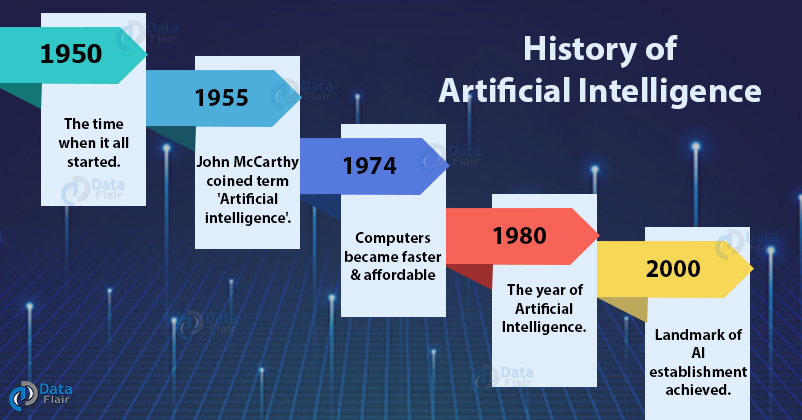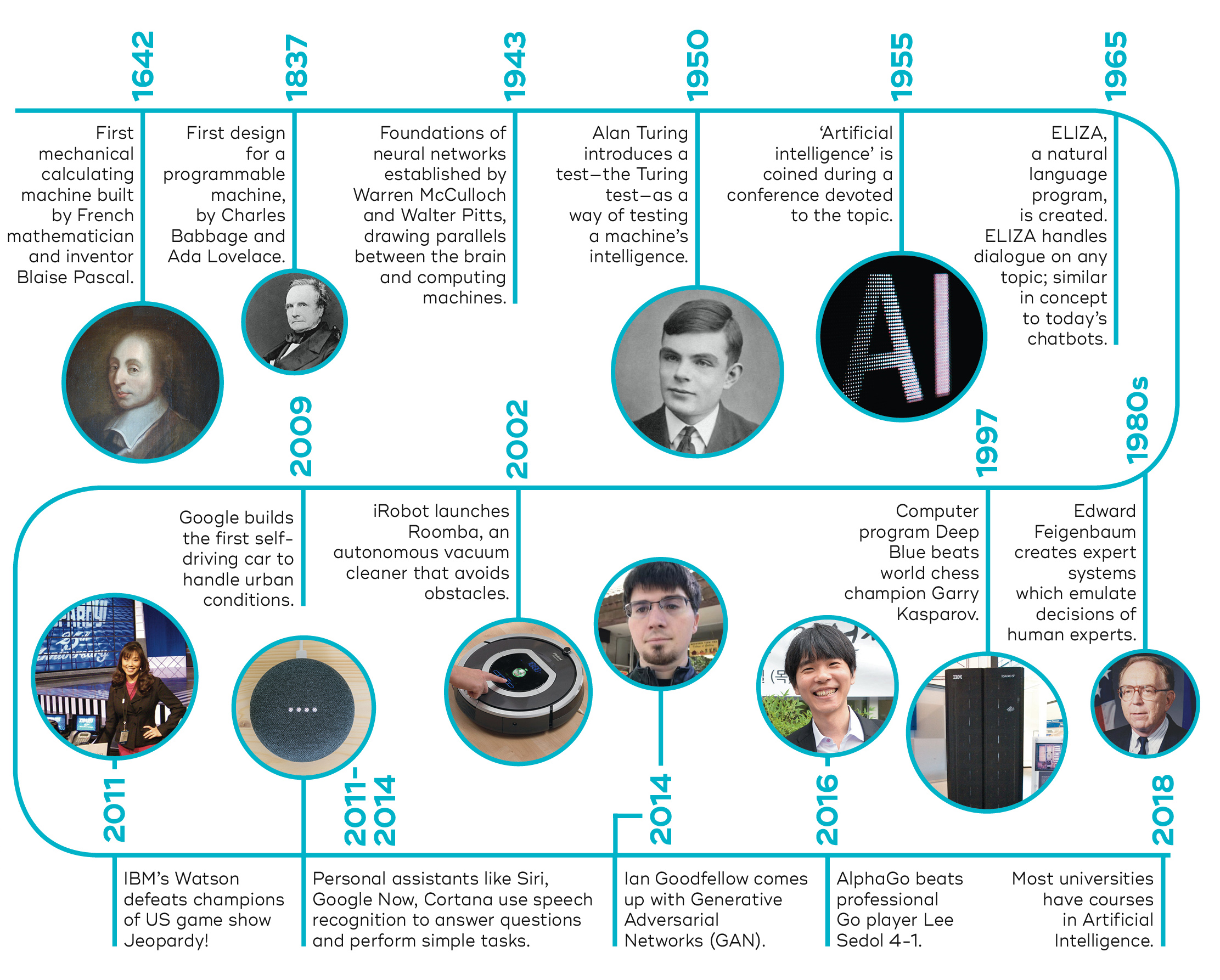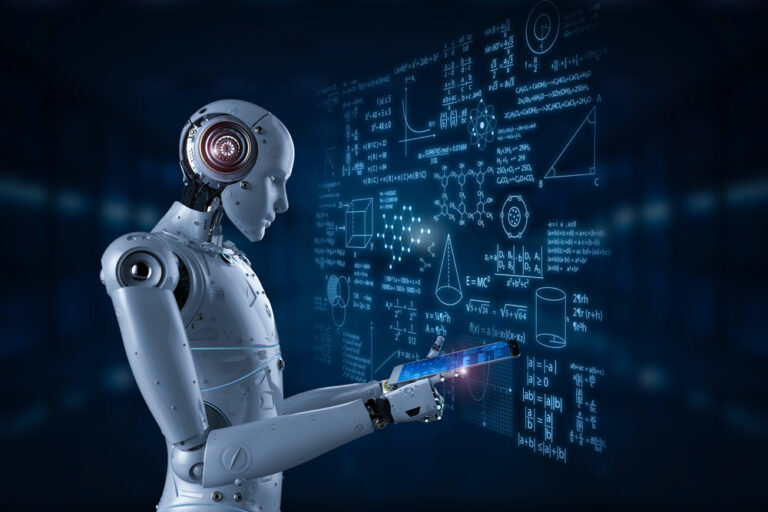Why Was AI Developed?
AI, or Artificial Intelligence, was developed to create machines and computer programs that are able to think and act as humans do. AI technology has been around for decades, but has seen a surge in development in recent years due to advancements in computing power and data. AI enables machines to learn from experience, adapt to new inputs, and perform human-like tasks such as problem solving, decision making, and communication. AI has been developed to solve complex problems faster and more efficiently than humans, as well as to enhance human abilities and extend our capabilities. AI is widely used across industries, from healthcare to finance, and is increasingly seen as a key tool in addressing some of the world’s most pressing challenges.
Historical Context of Artificial Intelligence
Artificial intelligence, commonly referred to as AI, is one of the most exciting and rapidly evolving technological fields of the 21st century. To understand why AI was developed, it’s important to look at the historical context in which it emerged. AI has its roots in the 1950s, when the first computers were developed. In 1956, the term “artificial intelligence” was coined by computer scientist John McCarthy. At the time, AI was seen as a theoretical field, with the goal of creating machines that could think like humans.
In the decades since then, AI has become a reality. Advances in computer hardware and algorithms have enabled AI to become increasingly sophisticated. AI is now being used in many different applications, ranging from autonomous vehicles to medical diagnosis. It has also been used to develop robots and other intelligent machines that can interact with humans in natural language. AI is being used in fields such as machine learning, natural language processing, computer vision, and robotics.
AI is now being used in many different industries, and its potential applications are only beginning to be explored. AI is being used to improve efficiency and accuracy in industries such as healthcare, finance, and energy. It is also being used to automate processes and to create intelligent systems that can interact with humans. AI is expected to have a profound impact on the world in the coming years and decades.
Definition of Artificial Intelligence
(AI)
AI is the ability of a computer or machine to think and learn like humans do. It is a field of science and technology that focuses on creating intelligent machines and systems, which can perform tasks that usually require human intelligence. AI is a broad branch of computer science, which includes several sub-disciplines like robotics, computer vision, natural language processing, computer networks, and machine learning. AI has been used in various applications such as vehicle navigation, medical diagnosis, and image and video processing. AI can be used to identify patterns, recognize objects, and understand language. AI has the potential to revolutionize the way humans interact with machines and with each other. AI can help to automate tasks, reduce human labor, and reduce the costs associated with certain tasks. By using AI, businesses can reduce operational costs, increase efficiency, and improve customer service. AI is also being used to improve the security and safety of data and systems. AI is being used to provide better insights into data and to enhance decision-making processes.
Applications of Artificial Intelligence
(AI) have been around for decades, but it wasn’t until recently that AI became a sought-after technology. AI has been developed to help people in various ways, such as automating mundane tasks, improving decision-making, and even providing medical assistance. AI can also be used to automate customer service tasks, provide personalized recommendations, and even predict customer behaviour. AI has become increasingly important in the modern world, as it provides better and more efficient solutions than traditional methods. AI algorithms are designed to learn from data and can be used to make decisions faster and more accurately than humans. AI can also be used to detect anomalies and fraud, and improve customer experience. AI is becoming increasingly popular due to its ability to provide more accurate results and faster turnaround times. AI can also be used to optimize processes and optimize production systems. AI is becoming increasingly important in many industries, including finance, healthcare, and transportation. AI can be used to automate processes, detect fraud, and improve customer experience. AI can also be used to improve decision-making and provide medical assistance. AI is being used in a variety of ways, from helping to predict customer behaviour to providing personalized recommendations. AI can also be used to optimize production systems and automate mundane tasks. AI is becoming increasingly important in many industries and is expected to continue to grow in the future.

Benefits of Artificial Intelligence
The development of Artificial Intelligence (AI) has been driven by the need to solve complex problems and make life easier. AI is capable of performing tasks that would be impossible for humans to do, such as recognizing patterns, understanding speech, and making decisions. AI has been developed to help us with everyday tasks, from recognizing voice commands to managing our bank accounts. AI technology has also been used to increase efficiency in the workplace and improve customer service.
AI has the potential to revolutionize the way we live by augmenting or even replacing human labor. This could result in more efficient production processes and improved customer experiences. AI can also help to detect and prevent fraud, reduce risk, and enable better decision making. AI technology can also be used to automate tedious and repetitive tasks, freeing up human workers to focus on more creative and meaningful work.
The development of AI has been rapid and its potential for enhancing our lives is immense. With its ability to automate complex tasks, AI can help us to streamline our workflow and make life easier. Additionally, AI can help to increase productivity and improve customer service, making the process of conducting business faster and more efficient. AI is also integral in helping us to discover new insights and better understand the world around us.
Challenges of Artificial Intelligence
AI has been developed as a tool to help people solve problems, but like any other technology, it comes with certain challenges. AI is not perfect and can cause unintended consequences such as data privacy and security risks, algorithmic bias, and a lack of transparency. In order to ensure that AI is used responsibly and ethically, it is important to consider these challenges and work to mitigate them.
Data privacy and security are one of the biggest issues with AI, as it relies on large amounts of data to operate. It is important to ensure that all data used in AI applications is secure and not open to manipulation or abuse. Additionally, algorithmic bias can lead to incorrect or unfair decisions if not properly monitored and addressed. It is important to ensure that AI is not making decisions based on biased data or incorrect assumptions.
Finally, transparency is essential when it comes to AI. People should be able to understand and trust the data and algorithms that are used in AI applications. Additionally, people should be able to understand how AI is making decisions and see the results of those decisions. Without this transparency, people may not trust AI and may be reluctant to use it.
In order to ensure that AI is used responsibly and ethically, it is important to consider these challenges and work to mitigate them. With the proper oversight, AI can be a powerful tool to help solve problems and create new opportunities.
The Future of Artificial Intelligence
The development of Artificial Intelligence (AI) has been a major focus of the tech world for decades now. AI has been developed as a way to increase efficiency in every aspect of our lives, from customer support to healthcare, from financial transactions to cybersecurity. AI is changing the way we interact with technology and the world around us, and it has the potential to revolutionize the global economy. AI can be used to automate tedious tasks, make decisions faster, and provide more accurate and reliable information. It can even be used to create personalized experiences for customers, allowing businesses to better serve their customers and generate more revenue. AI can also be used to develop new products and services that can provide a competitive advantage for businesses. It can even be used to create autonomous vehicles and robots that can help us in our everyday lives. AI can be used to solve complex problems that have previously been impossible to solve. With its potential for revolutionizing the world, it is no wonder why AI has been developed and why its usage is growing at such a rapid pace.
FAQs About the Why Was AI Developed?
1. What are some benefits of using AI?
Answer: AI can help automate various tasks, such as data analysis, customer service, medical diagnosis, and more. AI can also provide insights into complex problems and can help humans make decisions faster and with more accuracy.
2. What is the purpose of AI?
Answer: The purpose of AI is to enable machines to mimic human intelligence and behavior. By using AI, machines can learn from data and experiences to solve problems that would otherwise require human intervention.
3. How is AI being used today?
Answer: AI is being used in a variety of industries, from healthcare to finance to retail. AI is helping to automate mundane tasks, providing insights from data, and helping to increase customer satisfaction.
Conclusion
AI was developed to help humans address complex tasks more efficiently, quickly, and accurately. As technology continues to evolve, AI has become an increasingly important tool in many industries, allowing us to automate tasks and improve decision-making in areas such as health care, finance, transportation, and more. AI is also being used to develop new products and services that can enhance our lives and improve our productivity. AI is an exciting field of study that has the potential to revolutionize how we interact with the world around us.





